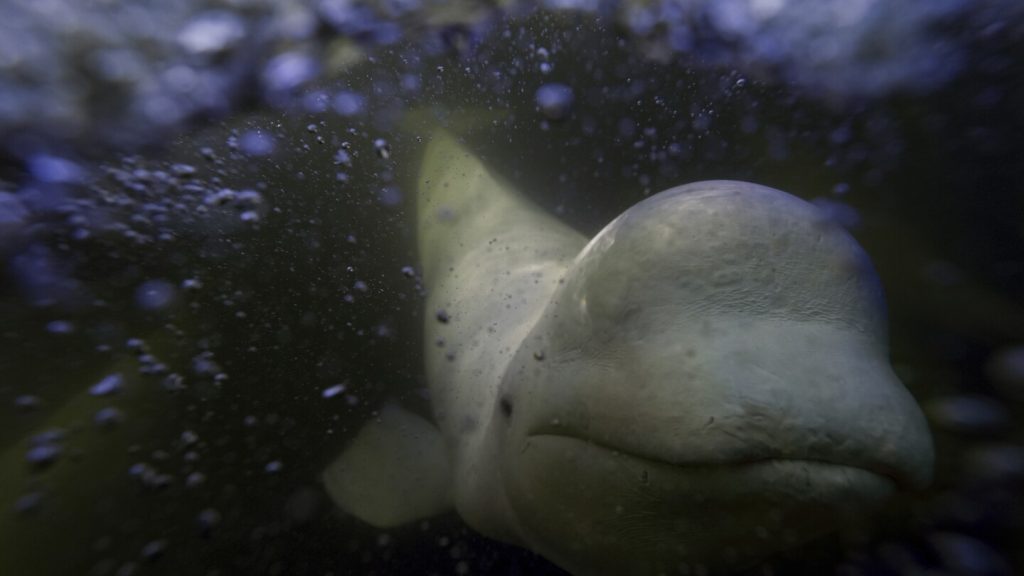In the town of Churchill, Manitoba, the presence of white beluga whales has brought not only joy but also healing to the community. The warming waters and melting sea ice in Hudson Bay have threatened the environment and economy, leading to concerns about the survival of polar bears and changes in the food chain. Despite these challenges, the lively belugas continue to swarm boats, clicking, nudging, and frolicking in the water. With as many as 4,000 belugas in the Churchill River during the summer, residents are hopeful that these sociable creatures will attract tourists and help revitalize the local economy.
Erin Greene, a survivor of a polar bear attack, found solace and healing through her interactions with the beluga whales. After suffering from post-traumatic stress disorder, Greene discovered the therapeutic effects of paddling with the whales and singing to them. Sharing this experience with tourists, Greene believes that the belugas offer a unique connection that brings immense joy and comfort to those who encounter them. Their gentle and playful nature has the power to uplift spirits and create a sense of harmony between humans and wildlife.
Known as the “social butterflies of the whale world,” belugas have a distinct vocalization that sets them apart from other marine animals. Their intricate communication patterns and community structures resemble human culture, making it easy for people to empathize with them. Research has shown that belugas have individual calls similar to names, creating a sense of identity within their social groups. As the environment in Hudson Bay changes due to shrinking sea ice and diminishing prey, scientists are monitoring the impact on the beluga population and their ability to adapt to new conditions.
The decline of Arctic cod, a key food source for belugas, and the increased presence of killer whales in the region pose additional challenges for the whales’ survival. While belugas are not currently listed as endangered, the threat to their cultural heritage and distinct populations is a cause for concern. Conservation efforts are underway to protect these beloved creatures and preserve their unique social structures. As researchers study the effects of climate change on the belugas in Hudson Bay, the community of Churchill remains hopeful that these playful whales will continue to bring joy and healing to those who encounter them.
The connection between humans and belugas transcends mere observation, with tourists and locals alike experiencing profound emotions in the presence of these gentle creatures. As the threat to animal cultures becomes more pronounced, conservationists emphasize the importance of preserving the unique behaviors and communication patterns of belugas. By raising awareness about the challenges facing these marine mammals, researchers and activists hope to ensure a sustainable future for the beluga population in Hudson Bay. Through education, advocacy, and responsible tourism practices, efforts are being made to protect these beautiful animals and the vital role they play in the ecosystem.


